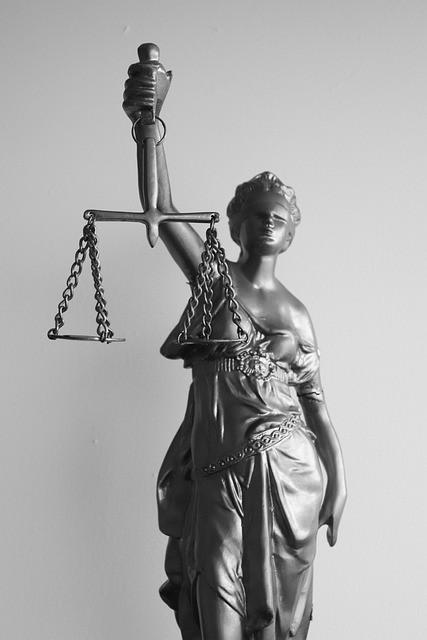Corporate Crime Investigations are crucial for exposing illegal business practices, especially in consumer protection. These inquiries delve into complex structures to ensure justice and accountability for fraud. In Consumer Protection Lawsuits, compensation is key; effective awards not only bring justice but also deter future misconduct, fostering ethical business. Strategic investigations use data analytics, digital forensics, internal controls, and whistleblower programs to uncover illicit activities. Case studies showcase successful strategies, like meticulous documentation, leading to substantial recoveries in lawsuits, emphasizing the importance of robust legal frameworks.
Corporate Crime Investigations delve into the intricate world of financial misconduct within organizations. This comprehensive overview explores key aspects, including the role of compensation in consumer protection lawsuits, where legal strategies aim to hold companies accountable for fraudulent practices. Learn effective investigation techniques and gain insights from real-world case studies showcasing successful prosecutions and valuable lessons learned. Discover best practices to fortify corporate governance and prevent future misconduct.
- Understanding Corporate Crime Investigations: A Comprehensive Overview
- The Role of Compensation in Consumer Protection Lawsuits
- Strategies for Effective Corporate Crime Investigation Practices
- Case Studies: Success Stories and Lessons Learned in Corporate Fraud Cases
Understanding Corporate Crime Investigations: A Comprehensive Overview

Corporate Crime Investigations delve deep into complex business transactions and practices to uncover illegal activities that often have far-reaching consequences. These investigations are crucial in navigating the intricate web of corporate structures, financial records, and regulatory compliance. The primary goal is to ensure justice and accountability for entities engaging in fraudulent or criminal behavior, with a particular focus on consumer protection.
In the realm of Consumer Protection Lawsuits, understanding compensation plays a pivotal role. When corporations engage in deceptive practices, jury trials become a vital tool to resolve disputes and award damages. A winning challenging defense verdict not only ensures justice for affected consumers but also serves as a deterrent for similar misconduct. For his clients, these investigations and subsequent legal proceedings offer a chance to reclaim losses and protect their rights, fostering a fair business landscape.
The Role of Compensation in Consumer Protection Lawsuits

In Consumer Protection Lawsuits, the role of compensation is a pivotal aspect that significantly influences the outcome and impact of legal proceedings. When individuals or groups file lawsuits against corporations for violations such as false advertising, unfair business practices, or product liability, the primary goal often goes beyond mere restitution. The pursuit of compensation serves to deter future unethical conduct by holding companies accountable for their actions, ensuring they adhere to legal standards and consumer rights. This is particularly crucial in cases where corporations may attempt to avoid indictment or a complete dismissal of all charges through loopholes or complex legal strategies.
A well-established and fair compensation structure can also contribute to an unprecedented track record of resolving such cases effectively. By awarding appropriate damages, restitution, and penalties, the court not only provides justice for affected consumers but also sends a powerful message that corporate misconduct will not be tolerated. This approach fosters a culture of ethical business practices and encourages companies to prioritize consumer protection in their operations, ultimately leading to a safer and more transparent marketplace.
Strategies for Effective Corporate Crime Investigation Practices

Effective corporate crime investigation practices require a strategic approach to uncover and address illicit activities within organizations. One key strategy is to focus on comprehensive data collection and analysis, leveraging digital forensics techniques to retrieve and examine electronic records. This includes financial transactions, communication logs, and digital devices, which can provide crucial insights into suspicious behavior. By employing advanced analytics, investigators can identify patterns and anomalies indicative of fraudulent practices or compliance breaches.
Additionally, fostering a culture of transparency and accountability is essential. Organizations should implement robust internal controls and encourage employees to report concerns without fear of retaliation. Encouraging open communication channels, such as anonymous tip lines or whistleblower programs, can serve as effective deterrents against corporate crimes. In high-stakes cases involving consumer protection lawsuits and significant compensation, ensuring the integrity of evidence and maintaining strict confidentiality are paramount to avoiding indictment and protecting both corporate and individual clients.
Case Studies: Success Stories and Lessons Learned in Corporate Fraud Cases

In the realm of corporate crime investigations, case studies serve as both powerful tools for learning and compelling narratives of justice served. Success stories highlight effective strategies employed by law enforcement and prosecutors, offering invaluable insights into tackling complex white-collar crimes. For instance, meticulous documentation and collaboration between regulatory bodies and legal professionals have led to significant recoveries in consumer protection lawsuits, ensuring compensation for respective business victims. These victories not only underscore the importance of robust legal frameworks but also demonstrate the potential for positive change through stringent enforcement.
Lessons learned from high-profile cases, however, also expose challenges in white collar defense. Navigating intricate financial schemes and understanding the motivations behind corporate fraud require a nuanced approach. Attorneys and investigators must adapt to ever-evolving tactics employed by perpetrators, while prioritizing ethical conduct and justice for all corporate and individual clients involved. Ultimately, these case studies exemplify the dynamic nature of corporate crime investigations, guiding efforts to mitigate risks and promote accountability in business practices.
Corporate crime investigations are a complex yet indispensable aspect of ensuring business integrity. By understanding the nuances of these inquiries, adopting effective strategies, and learning from case studies, organizations can fortify their defenses against fraud. Compensating victims play a pivotal role in consumer protection lawsuits, adding another layer to the investigation process. Ultimately, staying informed and proactive is key to navigating this intricate landscape, fostering transparency, and upholding justice within corporate practices.






